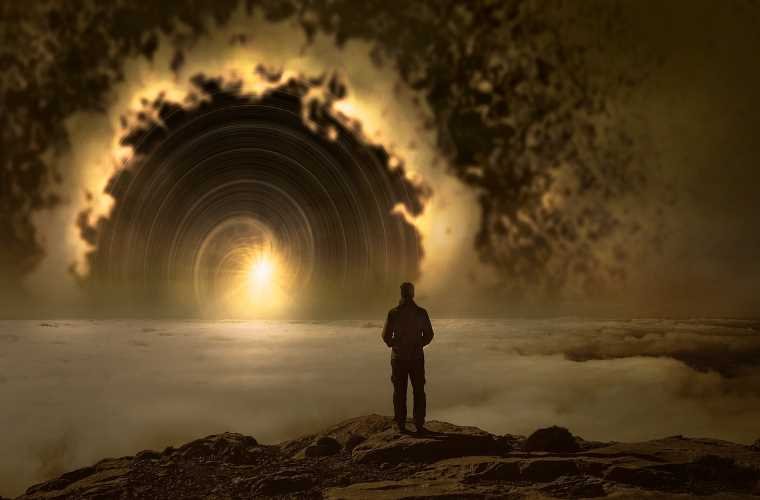Reported psychological benefits from psychedelics for mental health conditions like anxiety, PTSD, or depression are highest when the user reports the experience as being mystical or insightful in nature, according to newly published research.
Previous studies into using psychedelics for improving mental health have focused on the tangible increase in connectivity within the brain. However, this new evidence seems to suggest that the more mystical and insightful the experience while on these drugs, the higher the level of overall benefit.
Psychedelics Opening a New Frontier to Treating Drug-Resistant Mental Health Conditions
Often stigmatized for their recreational use, mainstream researchers are increasingly turning to psychedelics for their potential to treat a wide array of mental health conditions. Most notably, along with possible benefits for treating addiction, burgeoning research in this field has focused on anxiety, PTSD, and depression, especially in cases where other drugs and therapies have shown little to no improvement for those suffering from these often debilitating conditions.
Much of that research has focused on the physiological changes in the brain that often result from ingesting psilocybin (magic mushrooms), ayahuasca, and LSD, among others. Specifically, increased neural connections in brain regions often associated with these drugs have proven particularly tantalizing to researchers, who note that reduced connections in these brain regions often go hand in hand with anxiety, depression, and PTSD.
However, the latest research seems to suggest that the actual mental “journey” users experience while under the influence of these drugs may be as important, if not more so, in terms of improving overall mental health.
Analyzing How Mystical, Insightful, and Challenging Experiences Affect Outcomes
To better understand how the mystical or insightful aspects of the psychedelic drug experience may affect how much a user benefits from that experience, researchers from Ohio State University looked at survey results of 985 people from a wide variety of backgrounds who recently ingested psychedelics and who also reported changes to their preexisting symptoms of anxiety and depression. These substances included psilocybin, LSD, mescaline, ayahuasca, and 5-MeO-DMT, the natural psychedelic substance in the venom of the Colorado River toad.
In the study, published in the Journal of Affective Disorders, participants answered questions about how “mystical” their experience was, as well as how insightful the experience felt. For the purposes of the study, mystical was defined as “evoking a sense of pure awareness, positive mood and/or transcendence of time and space that is difficult to describe in words,” whereas insightful was defined as “eliciting acute insight into memories, emotions, relationships, behaviors or beliefs.”
The study participants were also asked to rate their symptoms of depression and anxiety along with their satisfaction with life and psychological flexibility both before and after using psychedelics. Notably, psychological flexibility was defined as “one’s capacity to act in ways that are consistent with their values regardless of whatever internal or external experience they might have.”
Finally, the participants were asked to report how “challenging” their experience was while under the influence of psychedelics. This was considered an important part of the study, as mental health professionals are often concerned that a highly challenging experience, sometimes referred to colloquially as a “bad trip,” could negate any benefits or even make psychological symptoms worse.
Mystical and Insightful Experiences Associated with Increased Mental Health Benefits
A detailed analysis of the responses led to the researchers separating the reported experiences into three distinct subcategories. They are defined as:
High Scoring: Where scores for “mystical” and “insightful” are accompanied by a high score for how “challenging” the experience.
Low Scoring: Where scores for mystical, insightful, and challenging were all low.
Positive Scoring: Where scores for mystical and insightful were high, but challenging was scored as low.
Contrary to the idea that the benefits derived from psychedelics were all biological and that the “journey” undertaken by the user was simply a side effect, the results of the study showed that high scores on how mystical and insightful the experiences were correlated with the highest with benefits for depression and anxiety. Simply put, a mystical and/or insightful experience seemed to be particularly important in helping those suffering from these mental health conditions reap whatever rewards psychedelics may offer.
“The group that had the highest insightful and mystical experiences and low challenging experiences showed the most benefit in terms of remission of anxiety and depression symptoms and other longer lasting benefits to their life,” said the study’s first author Aki Nikolaidis, an affiliate of Ohio State’s Center for Psychedelic Drug Research and Education (CPDRE) and a research scientist in the Center for the Developing Brain at the Child Mind Institute.
The other surprise for researchers came from the reports of more challenging experiences. While the best results came from the “High Scoring” group, where mystical and insightful components were combined with a low challenging score, the “Positive Scoring” group that experienced elevated challenges also reaped the majority of the benefits, as long as their scores for remained high for the experience being mystical and insightful. The researchers behind the study note that this result is significant, as the more mystical and insightful psychedelic experiences can often be challenging, and therapists who may explore psychedelic therapy for patients in the future will likely need to be prepared for these more challenging experiences.
“Sometimes the challenge arises because it’s an intensely mystical and insightful experience that can, in and of itself, be challenging,” explained the study’s senior author, Alan Davis, an assistant professor and director of the Center for Psychedelic Drug Research and Education in The Ohio State University College of Social Work. “In the clinical research setting, folks are doing everything they can to create a safe and supportive environment. But when challenges do come up, it’s important to better understand that challenging experiences can actually be related to positive outcomes.”
Clinical Setting Should Reveal More About Different Categories and Drug Types
One interesting finding came when the researchers narrowed down the groups to those who have taken either LSD or psilocybin. These two substances have often shown the most promise in previous studies, leading the researchers to see if their overall finding remained the same with just these two substances. As the researchers hoped, the results were essentially identical, as all three subtypes of high scoring, low scoring, and positive scoring remained consistent even for those taking either LSD or psilocybin.
“Identifying subtypes that exist regardless of which psychedelic you take answers an interesting question,” Nikolaidis said. “But the fact that we found that they’re associated with specific outcomes and replicated that finding really shows why it’s important to understand the powerful nature of what is happening subjectively and its potential to yield a beneficial outcome.”
Davis noted that the study’s outcomes were particularly informative for researchers at Ohio State who are exploring the potential benefits for military veterans who are suffering from PTSD, particularly the outcomes folks in the three different categories.
“Finding the variety of other outcomes that these subtypes might be related to is an interesting next step,” he said. “These could include adaptive or functional outcomes in people’s quality of life or well-being or a better understanding of their life’s purpose or relationships.”
Read About How Psychedelics Increase Brain Connectivity and Neuronal Growth.
Christopher Plain is a novelist, comedian, and Head Science Writer at The Debrief. Follow and connect with him on Twitter, learn about his books at plainfiction.com, or email him directly at christopher@thedebrief.org.

